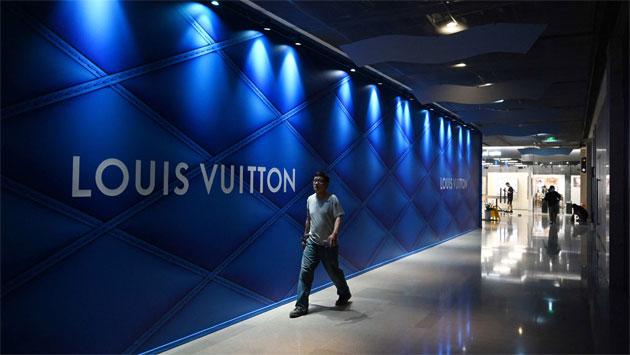02 Aug 2024 - {{hitsCtrl.values.hits}}
 China’s economic downturn has significantly impacted luxury brands, following declines in the housing sector, stock market, and job market. For the first time, leading global retailers are publicly attributing their sales drops to China.
China’s economic downturn has significantly impacted luxury brands, following declines in the housing sector, stock market, and job market. For the first time, leading global retailers are publicly attributing their sales drops to China.
Recently, top luxury company LVMH (Louis Vuitton and Moët Hennessy), which includes brands like Tiffany, Dior, Fendi, and Louis Vuitton, announced a drop of over 14% in sales this year. The major reason for this decline is that Chinese consumers are not spending enough.
Similarly, luxury brands Burberry and Hugo Boss reported 21% and 27% drops in quarterly sales, respectively, in China, Macau, and Hong Kong. This reinforces concerns about the weak buying trends among middle-class shoppers in China, who have become reluctant to spend on big-ticket items.
According to a report from consultancy firm Bain, China played a significant role in boosting global luxury retail sales, accounting for 16% of the $393.8 billion in revenue generated last year. However, recent profits have painted a gloomy picture, attributed to the ongoing property slump and job insecurity, which have contributed to a slow economic recovery.
Experts now believe that hopes for a revival of luxury brands in China are bleak, as second-quarter sales figures are also declining. “China is in the repair shop,” said Bernstein analysts after a recent visit to the country. Even Cartier owner Richemont’s recent quarterly sales report has confirmed fears about lackluster demand in mainland China.
Bain further predicted that 2024 will be the weakest year for the global luxury market. This downturn is not only affecting China’s middle class but also the wealthiest individuals, who are avoiding flaunting their wealth in favor of more discreet fashion. An estimated loss of over 180 billion euros has hit the luxury brand market, alarming top retail brands doing business in China. The LVMH Group has been hit hardest, with over 85 billion euros in losses, despite being the second most valuable listed company in Europe. Investment banking firm JP Morgan has reaffirmed fears of luxury retailers in China and stated that signs of improving business are needed to support expectations for the second half of the year.
According to a consensus report from Visible Alpha, LVMH’s second-quarter growth appears to follow a similar trend as the first quarter, potentially up by 3% year-on-year. In contrast, Kering, which is currently focusing on enhancing its key brand Gucci, is expected to report a 9% drop in second-quarter sales. Despite the economic downturn, some luxury brands are faring better. Italian luxury label Brunello Cucinelli reported a nearly 15% growth in first-half sales, while Birkin bag maker Hermes is expected to post a 13% sales growth for the second quarter. Hermes, known for its high-end bags costing over $10,000 each, continues to attract fashion enthusiasts.
According to Bain, the luxury sector experienced significant growth between 2017 and 2021, thanks to China’s strong consumer appeal for premium goods. Once COVID-19 restrictions were lifted, China’s wealthy and middle class splurged heavily on luxury retail brands in early 2023. However, the property sector soon showed signs of weakness, and China’s big spenders lost their momentum.
Bain also revealed that China’s wealthy class is engaging in luxury shaming by avoiding purchases of luxury shoes, handbags, and apparel. This trend mirrors what occurred in the United States during the Great Recession and has now impacted sales in China. This shift can be attributed to President Xi Jinping's campaign against wealth disparity, which promotes austerity. A recent dictate in China instructed bankers not to wear expensive clothes and watches to work after salary and bonus cuts, and people were urged to reduce spending on travel and entertainment. Xi Jinping has ordered financial firms to implement austerity measures to bridge the wealth gap.
Luxury brands are often seen as aspirational and reflective of strong societal status, but Xi’s austerity campaign has hindered their sales, affecting business ambitions. Experts believe that the continuous economic slowdown may prompt luxury brands to rethink their expansion plans in China and possibly seek more flourishing economies in the Asian region.
23 Dec 2024 2 hours ago
23 Dec 2024 3 hours ago
23 Dec 2024 6 hours ago
23 Dec 2024 7 hours ago